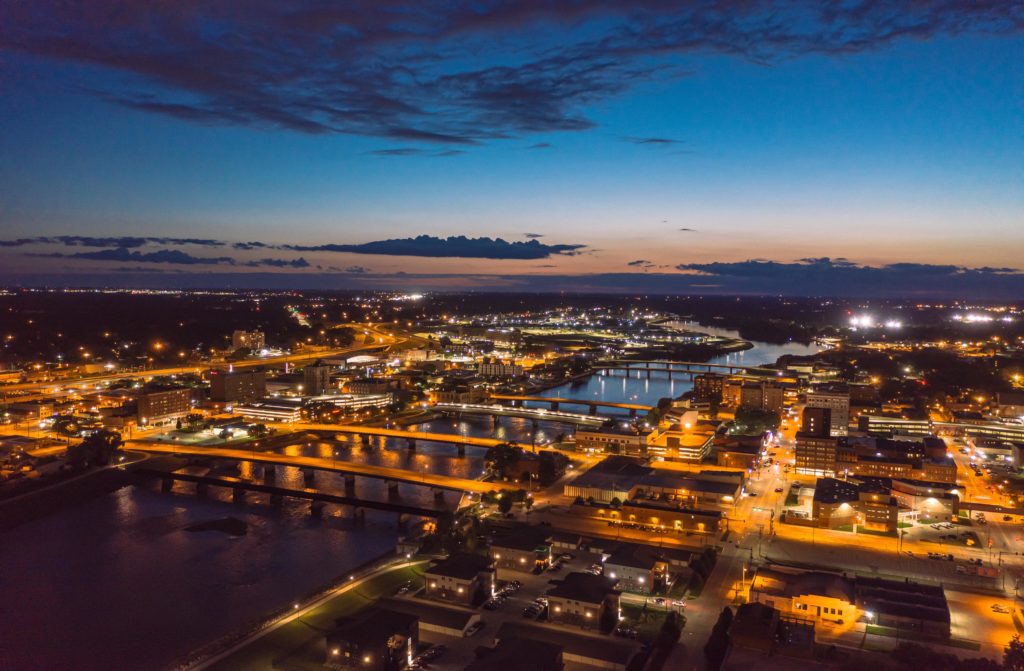Waterloo Bridges Project
Public Awareness Website

“The ten bridges that cross the Cedar River in Waterloo are symbolic of the community and its progress. These bridges represent a community thriving with commerce; a connected city with access to opportunity, education and essential services; a united city working together to remove barriers and build both physical and philosophical bridges.”
Waterloo Mayor Quentin M. Hart
The reconstruction of Waterloo’s Park Avenue and 11th Street bridges over the Cedar River is an opportunity to unify and connect the citizens of Waterloo. Reconstructing these two bridges will provide vital and resilient links in the downtown area that improve traffic operation and mobility, especially during future flood events, and provide better connectivity to both sides of the Cedar River for all vehicles, pedestrians and bicyclists. Both bridges will maintain and improve the connection to downtown neighborhoods and businesses. The Park Avenue bridge can also provide an innovative signature community space to the downtown neighborhoods and cultural areas, in addition to transportation connectivity.
Waterloo has a rich cultural story that is celebrated throughout the downtown area, centered by the Waterloo Cultural and Arts District. The Park Avenue bridge can enhance the cultural footprint of the downtown area and unify the east and west sides of the Cedar River. In planning for the bridge’s design and construction, discussions will center around bridge form, aesthetics and function to ensure its utilization as a transportation and cultural link celebrating and fostering the rich diversity and heritage of Waterloo and its citizens. Opportunities may exist to utilize the bridge space during nearby cultural events in non-peak traffic times when traffic closure is a possibility, for instance during “My Waterloo Days”.
The Park Avenue bridge will be a companion bridge to the existing iconic 4th Street Signature bridge. The 4th Street bridge already is part of “Downtown Waterloo’s front door” in the Hospitality Zone, and the Park Avenue bridge will become another link in the Hospitality Zone connecting the area hotels, Riverwalk System, American Discovery Trail, Arts Mall, Arts Zone and Main Street Commercial Zone.
The 11th Street bridge has a similar and yet different form and function as compared to the Park Avenue bridge. The 11th Street bridge also needs to improve traffic operation for all vehicles, pedestrians and bicyclists, especially during future flood events, and additionally it is a critical commuter link within the community. Opportunities exist to utilize aesthetic details, as exemplified in the 18th Street bridge, to tie the bridge together with the wards, neighborhoods and businesses. The 11th Street Gateway Redevelopment concepts may be incorporated within this reconstruction, such as wayfinding signage, landscaping, and bannering.
Bridges are important links within communities, and reconstruction of these bridges will improve the lives of Waterloo’s citizens and will strengthen the livability of downtown Waterloo. Improving emergency services through this reconstruction will provide better community services to the citizens due to the removal of weight limits currently on the existing bridges. The river is recognized as “truly the downtown’s key asset”, as identified in the Waterloo Downtown Redevelopment Master Plan Update. These bridge reconstructions can enable the reconnection to the riverfront through their improved design and function, in concert with the existing Riverwalk System.
Next generation bridges benefit next generation Waterloo. Our goal is to ensure that the structures stand out as examples of current state-of-the-art infrastructure and blend in with the overall Waterloo Downtown Redevelopment Master Plan.
Read WCF Courier’s background article HERE.